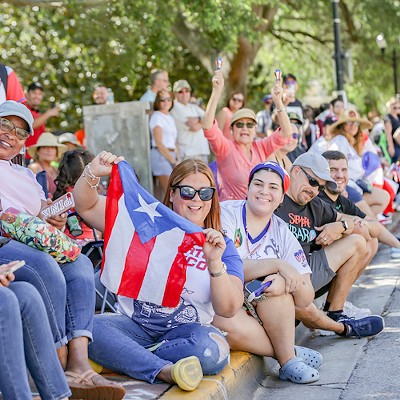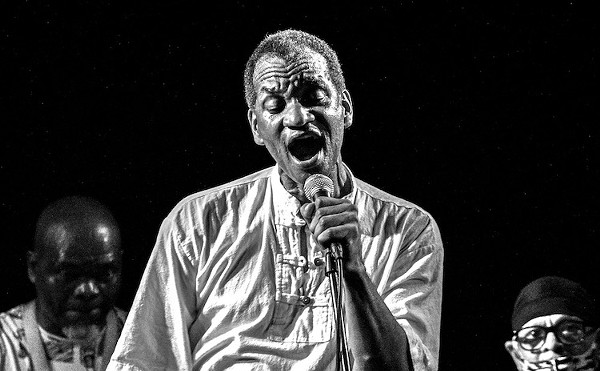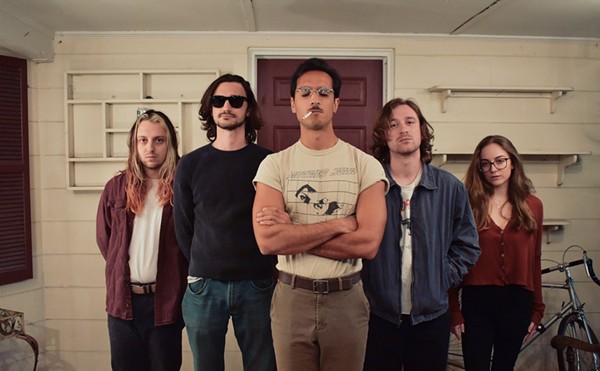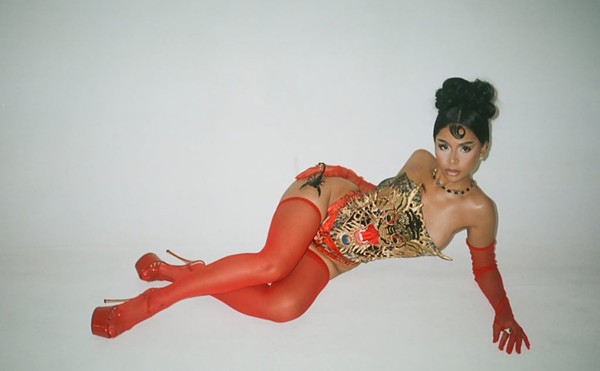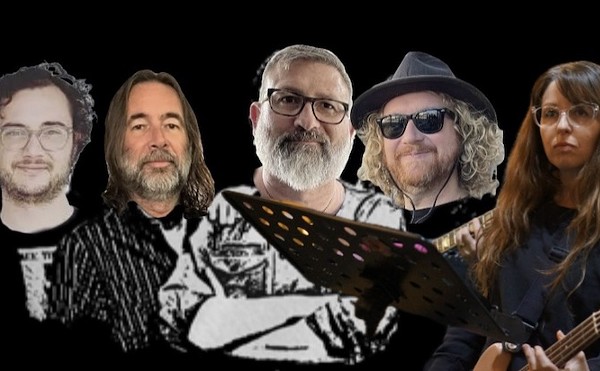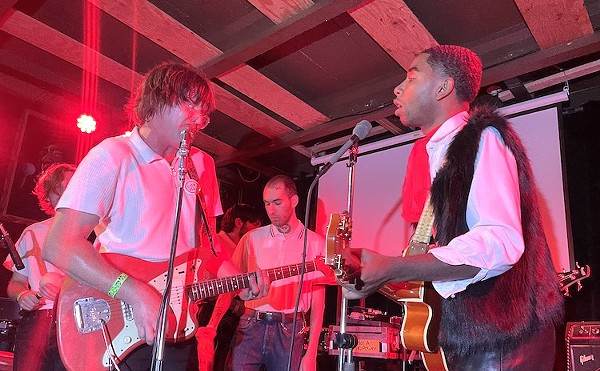Ex-Fugees producer John Forté keeps a low profile these days. Only a couple of people in the world have his home phone number. Forté has a new day job, working with teenage children of incarcerated parents through a program called In Arms Reach, which shows kids how to use songwriting as a form of catharsis. When he's not teaching, Forté tends to barricade himself in the studio, or at his home in Tribeca, New York, with his battered violin and seven guitars. Since his release from prison last December, after serving seven years of a 14-year drug sentence, Forté treats home as his sanctuary.
Nine months into his newfound freedom, the former-prep-school-student-turned-felon has a new album and a memoir in the works. The 34-year-old artist is gradually acclimating to Twitter and Google — and a new life. A decade ago he was signed to Columbia Records, hangin' with Lauryn Hill and enjoying the life of an A-list rapper-producer. Now he's adopted a more ascetic lifestyle: no television, few phone calls, a lot of time spent thinking and writing.
Forté grew up in Brownsville, Brooklyn, a rough, working-class neighborhood wedged between East Flatbush and Bedford-Stuyvesant; he was a straight-A student at public schools with metal detectors. He took up violin at age 8 to be in the school orchestra and started listening to classical music ("the obvious guys — Mozart, Beethoven and Chopin," says Forté) along with all the '80s-era hip-hop that was popping in New York. In junior high school, a guidance counselor suggested he consider boarding school at New Hampshire's Phillips Exeter Academy. Unaware of the difference between "boarding" school and "reform" school, Forté balked.
"I grew livid," recalls Forté. "I said, ‘I'm a good kid — I don't deserve boarding school!' She let me grow red in the face, then she said, ‘I think you misunderstood.' She showed me brochures, and my eyes lit up."
Forté began living the double life of a smart scholarship kid from the 'hood. At Exeter he continued studying violin while producing hip-hop tracks on equipment passed down from his wealthier schoolmates, starting out on a Casio P1 and cassette deck and later advancing to four- and eight-track machines. Forté would take it back home to Brooklyn on summer breaks.
At home, he met Gang Starr through a mutual friend and hung out with DJ Premier in the studio. When Forté tells the story today, he still sounds enraptured.
"Here I was in the studio looking over the shoulders of one of hip-hop's pre-eminent producers, looking at the way he triggers sounds," says Forté.
Forté eventually wormed his way into the upper echelons of East Coast hip-hop. He met the Fugees through his friend Jeff Borrows, who was their product manager in the early 1990s. One day Borrows showed Forté a VHS tape of the group's first video, for the single "Boof Baf" from their 1994 LP, Blunted on Reality. "This is the future of music," Borrows announced, as Wyclef Jean, Lauryn Hill and Pras danced through a landscape of demolished abandoned buildings. That night, Forté caught his first Fugees show at the Supper Club and talked to Hill afterward. Soon he was at their studio, the Booga Basement, sharing some of his own tracks with the group, which led Forté to co-writing and producing two songs on their multi-platinum 1996 album, The Score.
Forté went on to make two solo albums of his own, 1998's Poly Sci — a mix of peppy beats and cerebral lyrics that flopped on the market but garnered praise from music critics — and the 2002 follow-up I, John, recorded in the short period between his arrest and trial. His combination of classical training and street sensibility made him a thoroughly interesting rapper, while his use of live instrumentation and vintage jazz samples provided musical depth. He was a tweedy intellectual with a gritty upbringing — a guy who listened to Rachmaninoff but could hang with thugs. He navigated both worlds with ease.
Forté's hip-hop career came to an abrupt halt in 2000, when he was arrested at the Newark International Airport for carrying a briefcase with 31 pounds of liquid cocaine worth about $1.4 million. Poly Sci had sold only 79,000 copies, Columbia had dropped him, a dissolute celebrity lifestyle had drained his cash and he couldn't make the rent on his two-bedroom apartment. Forté was easy prey for Chris Thompson, the Jamaican drug dealer he met while spinning at a Manhattan nightclub. Thompson hired Forté as a middleman between the cartel operators and "couriers" who transported suitcases of cocaine throughout the United States. (In a 2002 jailhouse interview, Forté told Rolling Stone journalist Peter Wilkinson that he thought the suitcases were full of cash, not narcotics.)
After his arrest, Forté was incarcerated at a Texas prison and then transferred to FCI Loretto, a low-security federal facility in central Pennsylvania. He fell into a deep, abysmal depression.
"I didn't play, didn't write, didn't think about music for the first two years," says Forté. Finally, he picked up a guitar from the recreation department at Loretto and taught himself a few chords. He would stay up until 3 a.m. practicing in his cell.
Seven years passed before Forté was finally able to apply his new insights to his own music. President Bush commuted his sentence in November 2008, and he got out four weeks later. He wasted no time getting back into music, returning to the now-dilapidated violin that sat at home waiting for him, "like a good girl," and amassing his current collection of guitars. His new seven-track album, StyleFREE EP (available for $4.99 download at www.johnforte.com) mixes rap with singer-songwriter material. Forté's rap style has remained consistent over the years — a word-heavy, baroque flow that favors narrative over braggadocio — and his singing voice displays a raspy, grainy tenor. Forté says that after spending so much time away from the free world, he's become a well-rounded artist.
"There is something about tortured social pariahs, irrespective of genre … people who suffer yet find ways to co-exist via their music. I guess the universe heard," says Forté, "because I suffered."
[email protected]


